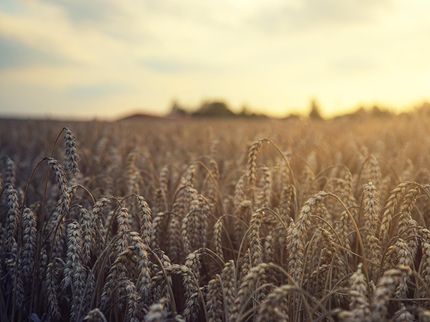Spelt: as good as its reputation?
The grain is considered to be particularly healthy and well tolerated, although people with coeliac disease should avoid spelt products containing gluten
Advertisement
spelt has a good reputation, but many people don't even know that it is a type of wheat. Like common wheat, the grain comes from the botanical genus Triticum. "Unlike barley or rye, spelt is not a separate type of grain," explains Prof. Dr. Stephan C. Bischoff, Director of the Institute of nutritional medicine at the University of Hohenheim in Stuttgart, in the health magazine "Apotheken Umschau".
The better tolerability is due to the processing
Together with his team, nutritional physician Bischoff therefore investigated the question of why products made from spelt are apparently better tolerated than those made from wheat. "The main reason for the better tolerance of spelt is the processing," he states. Unlike many wheat breads, spelt breads are usually baked with a long dough. This means that the dough is made with less baking agent and is left to rise for a longer time at cool temperatures. With this form of baking, carbohydrates that are difficult to digest are broken down better. Spelt bread with a long dough is therefore particularly suitable for people who suffer from irritable bowel syndrome, i.e. who react more frequently with abdominal pain, flatulence and diarrhea. Spelt also contains more protein, potassium and iron than wheat.
Consumers insufficiently informed
However, anyone who suffers from coeliac disease or has a wheat allergy must avoid cereals containing gluten, including spelt. A survey by the Federal Institute for Risk Assessment shows that consumers are not sufficiently informed about this. The institute therefore advocates "clear wording in the labeling that spelt is a wheat cereal" - for example by using package labels such as "spelt (a type of wheat)".
Note: This article has been translated using a computer system without human intervention. LUMITOS offers these automatic translations to present a wider range of current news. Since this article has been translated with automatic translation, it is possible that it contains errors in vocabulary, syntax or grammar. The original article in German can be found here.
Topics
Organizations
Other news from the department science

Get the food & beverage industry in your inbox
By submitting this form you agree that LUMITOS AG will send you the newsletter(s) selected above by email. Your data will not be passed on to third parties. Your data will be stored and processed in accordance with our data protection regulations. LUMITOS may contact you by email for the purpose of advertising or market and opinion surveys. You can revoke your consent at any time without giving reasons to LUMITOS AG, Ernst-Augustin-Str. 2, 12489 Berlin, Germany or by e-mail at revoke@lumitos.com with effect for the future. In addition, each email contains a link to unsubscribe from the corresponding newsletter.






























































